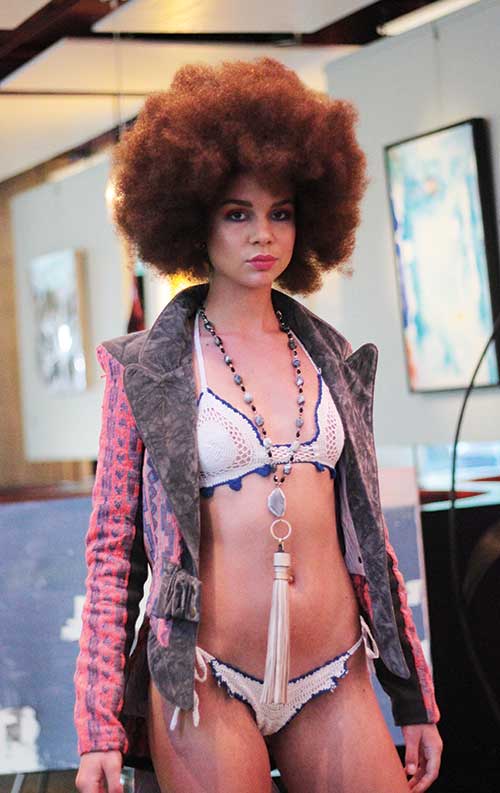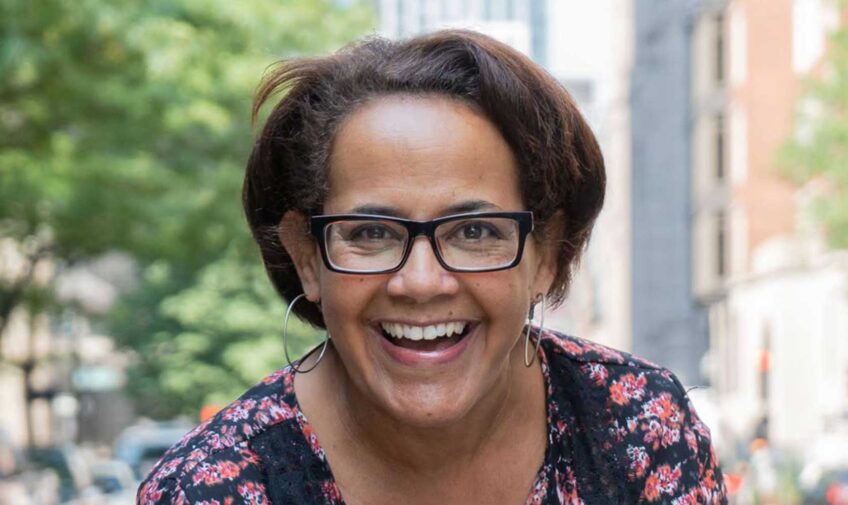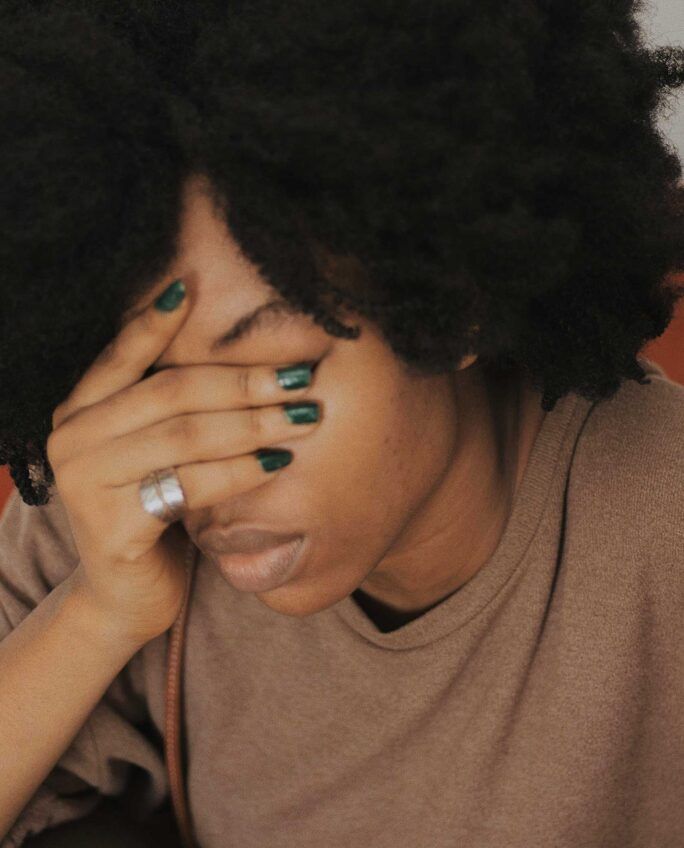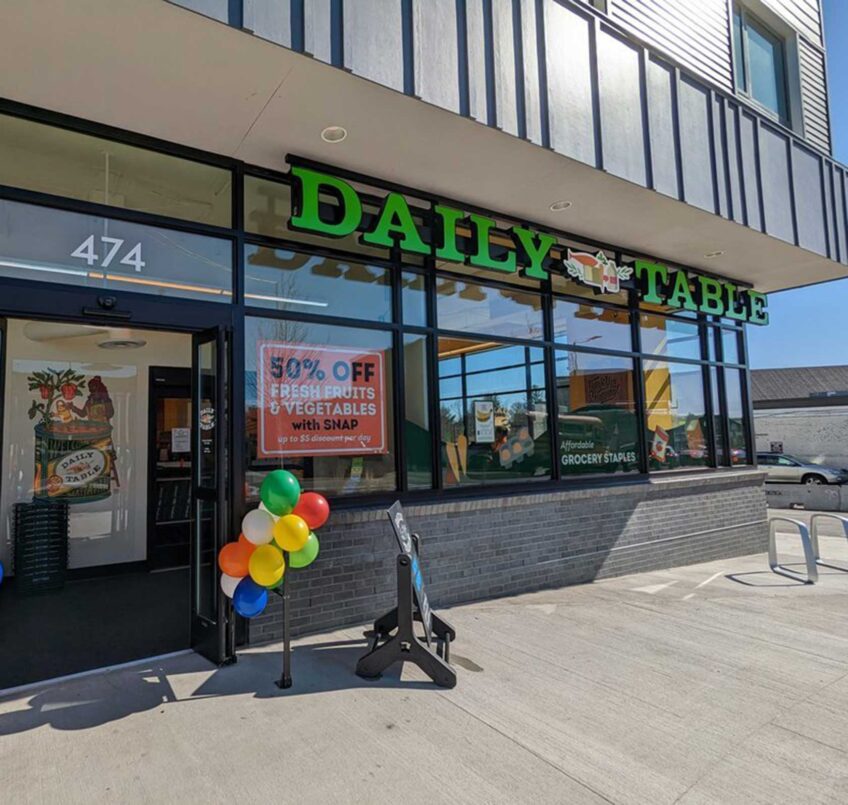
Swimwear designer Francine Makuwa fled her home in the Congo as a refugee when she was 9 years old. As she traveled to the United States to seek asylum, an elderly woman taught her how to crochet. “While running from the war, she found peace in crochet,” says Makuwa. “I never forgot.” Now, 17 years later, Makuwa has created a line of crocheted swimwear and hopes to use it to give back to the people she left behind.

Author: Celina ColbyModels display Makuwa Swimwear designs.

Author: Celina ColbyModels display Makuwa Swimwear designs.
On the Web
For more information about Makuwa Swimwear and to purchase online, visit: https://wearmsw.com
“I came from a culture where a woman in a bikini was not ladylike,” says Makuwa. “Coming here, I learned that a woman shouldn’t be judged by what she’s wearing.” That sense of liberation drove the designer to create her line of intricate, crocheted two-pieces. She uses colorful fabric and patterns to pay homage to her tropical homeland.
Having overcome significant obstacles to get to where she is, Makuwa designs for an equally bold and powerful customer. Many of her styles feature avant-garde details. The “Belle” suit boasts an open-weave train and the “Dahlia” is a traditional string bikini form crafted in a bright orange faux fur. The revealing, but tasteful, suits encourage women to embrace their natural shape.
On Sunday, Oct. 1, Makuwa presented her line at Liquid Art House as part of Boston Fashion Week. The presentation was as much a reflection of herself as her designs. “One of my signatures with the models is a big ‘fro with a flower — a sign of my African heritage,” she says.
For Makuwa, the swimwear project is about more than style. Every day, she remembers the woman who inspired and taught her. “That woman is part of who I am today,” she says. Her long-term plan is to open an education and production center in the Congo where older women can learn crochet and handcraft skills that allow them to continue making a living. “In the Congo after a certain age you’re left on your own,” the designer says. “I want to raise enough money so that older women aren’t just left to die when society thinks they’re not useful.”
For now, fundraising and creation are Makuwa’s priorities. She’s established a GoFundMe account for the project, and proceeds from her sales will also go toward finding a location and a teacher in the Congo to get the center started. “Why not bring the business somewhere where there is poverty and it can make a difference?” says Makuwa. “One step at a time, we’ll get it done.”







